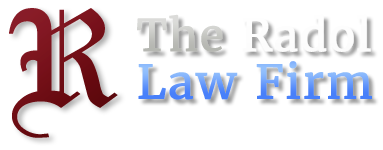Certain debts are not dischargeable in bankruptcy and it is important to distinguish between what can be discharged and what cannot be discharged. A knowledgeable bankruptcy attorney in Bergen County can identify the debts that can be discharged if you file and the debts that will not be discharged.
Debts That Can Be Discharged:
Unsecured debts such as credit cards, cash advances, etc.
Medical bills
Foreclosure judgments
Vehicle repossessions
Utility bills
Evictions
Personal loans
Unsecured Debts
The most common type of debt discharged in a bankruptcy is unsecured debt, and the most common type of unsecured debt is credit card debt. The vast majority of debtors in bankruptcy are suffering from some form of credit card debt. Most credit card debt is dischargeable due to it not being secured by anything, such as a vehicle or a home, to protect the creditor’s interest in the loan they provided you. Thus, there is nothing that protects their loan from being discharged in a bankruptcy.
However, there are a few situations where your credit card debt may not be dischargeable. Most of these cases involve some level of fraud or high usage in the last few months before filing bankruptcy. Otherwise, credit card debts are normally discharged in bankruptcy.
Medical Bills
Another common debt discharged in bankruptcy is medical debt. Many debtors are in the position of filing bankruptcy due to an ailment or illness that kept them from working. In addition, their insurance coverage may have only covered a portion of their medical expenses and they faced a mountain of medical debt as a result. Unfortunately, judges do not care if you were sick during this period of time and will still find you liable for the debt incurred while sick. As a result, filing bankruptcy may be the best protection against overwhelming medical bills
Foreclosure
Foreclosures occur when your home is taken back by the lender. In certain situations, you may still owe money despite losing your home to foreclosure. Many lenders auction off the home for less money than the house is worth and if you owe more than what the auction price was, you may be responsible for the remainder of the debt, known as a deficiency judgment. If that occurs, bankruptcy might be the safest option for you as the foreclosure debt will be discharged. Bankruptcies can also eliminate the foreclosure from appearing on your credit report and negatively affecting your credit.
Vehicle Repossessions
Another common type of debt dischargeable by bankruptcy is a vehicle repossession shortfall. Some debtors have trouble paying their car payments and end up losing the car to repossession. Much like a mortgage foreclosure, the car is then auctioned off by the creditor and any amount owed not covered by the auction price remains with the debtor in a deficiency judgment.
This is a very common situation that can drive people into filing bankruptcy as no one enjoys having to pay on a vehicle that has already been taken away. If you are facing this situation, then you should contact an experienced bankruptcy attorney in Bergen County and see if bankruptcy is a good option for you.
Utility Bills
A less common type of debt that can be discharged in bankruptcy are utility bills. These can include electricity bills, cable bills, cell phones bills, internet bills and gas bills. While these debts alone should not push someone into filing bankruptcy, know that they can be discharged and removed from your credit report.
Evictions
Many people in bankruptcy have been evicted at some point prior to their filing. Any past evictions will be discharged in bankruptcy. However, a debtor who files bankruptcy is not fully protected from being evicted simply by filing bankruptcy. Many debtors file bankruptcy to freeze the eviction process and the process does freeze momentarily.
However, the bankruptcy court allows landlords to file emergency motions to lift the bankruptcy freeze and retain their property if the debtor cannot settle with the landlord on paying the rent owed back. However, the unpaid rent will be discharged in the bankruptcy.
Personal Loans
Most people do not like to include personal debts when they file bankruptcy due to these monies being owed to someone they know, such as a friend or family member. But you are required to list all debts owed when filing bankruptcy, so personal loans should be listed and discharged in a bankruptcy.
The Radol Law Firm can assist you in determining what debts, if any, are dischargeable in a bankruptcy. If you need quality legal support through the process of bankruptcy, contact our firm for a consultation to discuss your legal matter.
The Radol Law Firm is proud to serve the people of New Jersey in their divorce and family law, elder law, estate planning, and bankruptcy matters. Contact our firm today to schedule a consultation.
